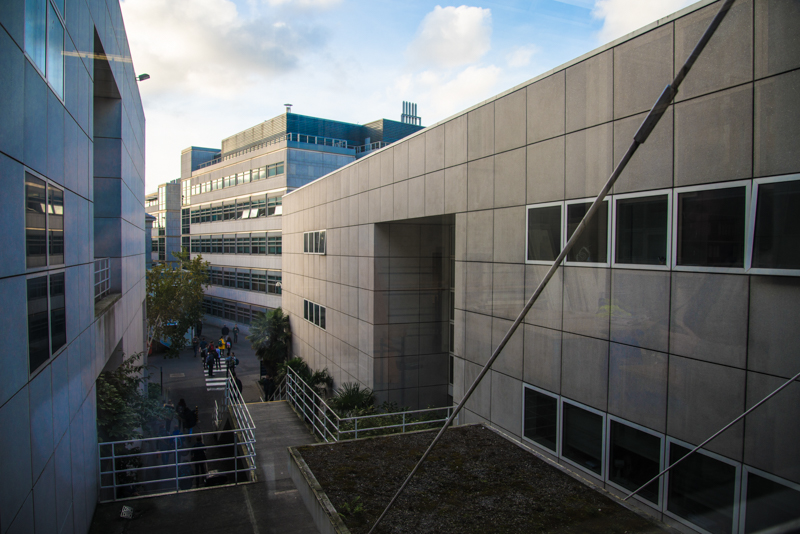World-leading computer science researchers today gathered in Trinity to celebrate a half-century of research in computer science and to debate the role of the discipline in tackling the major challenges of the future.
Researchers, alumni and current computer science students descended on the O’Reilly Building for an open event that included a special exhibition of vintage computer science equipment – on show from the Prof John Byrne collection.
Byrne, known in the field as the “Father of Computing” in Ireland, was the founder of Trinity’s computer science department.
In a press statement, Prof Jeremy Jones, the head of the School of Computer Science and Statistics at Trinity, said that over the last 50 years, the department has “established a legacy that will continue to grow for generations to come”.
“Trinity showed great ambition and foresight in setting up of one of the first schools of computer science in the world 50 years ago”, Jones said, “and is now helping to create the Grand Canal Dock Innovation District, which will position Ireland on the world stage and enable the connection of indigenous and multinational companies with researchers and VCs. GCID will drive investment in new industries, support new ventures and help build a new sustainable future”.
“It is impossible to know what the world will look like in 2069, but computer science research will undoubtedly shape it – the next 50 years promise to be very exciting.”
The School of Computer Science and Statistics has a special focus on the areas of artificial intelligence, digital content technology, graphics and animation, augmented and virtual reality, future networks and the “Internet of things”, future cities, data protection, and software innovation.
Prof Gavin Doherty, an associate professor in the school, led a project to develop the SilverCloud platform, which is used to deliver a range of clinician-supported mental health interventions for conditions such as depression and anxiety. The online platform has come to be used by over 300,000 patients in health services worldwide, including over 74 per cent of the UK’s National Health Service.
In a press statement, Doherty said that “mental health is one of the greatest challenges facing our society”.
“There is understandably a lot of interest in using technology to increase access to evidence-based treatment”, Doherty said. “The privacy that technology can afford can also help to overcome stigma, encouraging people to seek help earlier.”
“Our work in this area has been a wonderful opportunity to collaborate with health science and psychology researchers, and provides an example of how interdisciplinary research in computer science can address significant problems with global impact”, he added.







